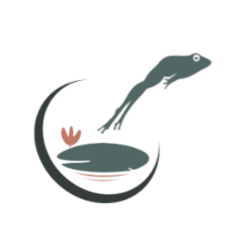Are You in a Controlling Relationship?
The early stages of any relationship are usually so happy and carefree. It can be difficult to see trouble on the horizon while enjoying the bliss of getting to know someone to whom you are attracted. Toxic relationships are not usually sought out, but they can easily sneak up on you when you are already invested in the bond. People of any age, gender, sexual orientation or socioeconomic status can become involved in a controlling relationship, Psychology Today reports.
It's better to be informed so that you are aware of some of the red flags. Psychology Today helped out by providing some signs to look out for:
Isolation from friends and family - Often the first step a controlling person will take is this subtle one. They might ask you to stop talking to your sibling on the phone so much. They could stop coming to social outings which involve your friends, and expect you to stay in with them. A controlling person has the intention of completely eliminating your support network, which gives you the strength you need in standing up to them.
Criticism - Even if the criticisms are small, they can build up to a bigger problem. A lot of people try to rationalize these critiques by saying their partner is just trying to make them a better person, or that this feedback is warranted. When every little thing is being picked at, it will be difficult to feel loved and accepted.
Guilt - Most controlling people are also skilled manipulators and can be very persuasive. They can use their partner's emotions to get exactly what they want and ensure that everything is aligned in their favor.
Veiled threats - Threats do not have to be physical in order to be problematic. Partners will often make threats of leaving, cutting off finances, or even that they will harm themselves if the person doesn't cooperate with what is being asked.
Creating a debt you are beholden to - Extravagant gifts, luxury vacations and multiple course meals can seem like fun romantic gestures in the beginning of a relationship. Upon closer look, many of them can be used to control you. They create an expectation that you will eventually give them something in return, which makes it difficult to escape the relationship when things get worse later on.
Spying and snooping - A typical controlling partner feels like they have the right to constantly know more than what is necessary. Whether they demand to check phones, log into an email account, or inspect browser history, they are crossing boundaries and being invasive. It is a violation of privacy, whether or not there is something to hide.
Jealousy, accusations and paranoia - Jealousy can sometimes be viewed as flattering at the beginning. When it becomes more persistent, it can be possessive and suffocating. When your partner starts to claim anxiously that every single person of the opposite sex is checking you out in the restaurant, or telling you that your clothes are too revealing and may cause leers, it's time to face the issue.
Do you recognize your partner in any of these? Try to reassemble your support system, practice self-care, ask for help when needed and understand that feelings can be fixed.

